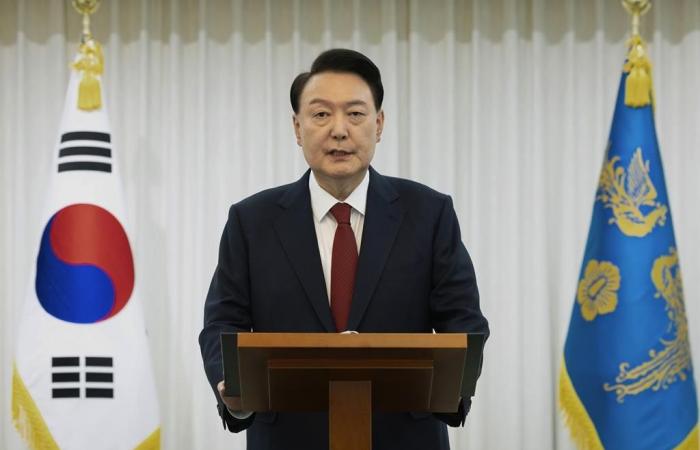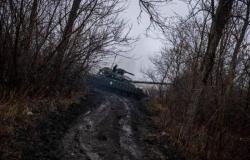It is the latest confrontation in a political crisis that has paralyzed South Korean politics and seen two heads of state deposed in less than a month. It all began on December 3 when President Yoon, apparently frustrated that his policies were being blocked by an opposition-dominated parliament, declared martial law and sent troops to surround the National Assembly.
Parliament overturned the declaration within hours in a unanimous vote and itself impeached Mr Yoon on December 14, while South Korean authorities opened a criminal investigation into the events. Mr. Yoon remained defiant, ignoring requests for questioning and vowing to fight to stay in power.
Four hours after dozens of investigators and police officers were seen entering the gate of Mr. Yoon's residence in Seoul to execute an arrest warrant against him, the dramatic scene appeared to have escalated into a confrontation.
The anti-corruption agency did not immediately respond to questions about whether investigators had managed to enter Mr. Yoon's residential building, but South Korean television YTN reported scuffles between investigators and police facing presidential security forces.
Seok Dong-hyeon, one of several lawyers on Mr. Yoon's legal team, confirmed that investigators had arrived at the building but said it was unlikely they would be able to arrest the president on Friday. He said the agency's efforts to arrest Yoon were “reckless” and showed an “outrageous disregard for the law.”
South Korea's Defense Ministry confirmed that investigators and police managed to bypass a military unit guarding the grounds of the residence before arriving at the building. The presidential security service, which controls the residence itself, declined to say whether its members were confronting investigators and whether they planned to block the attempted arrest.
The hours-long standoff prompted the liberal opposition Democratic Party to call on the country's acting leader, Vice Prime Minister Choi Sang-mok, to order the presidential security detail to stand down. Mr Choi, who is also finance minister, did not immediately comment on the situation.
“We warn the head of the presidential security service Park Jong-joon not to participate in any further rebellion. Do not drag honest presidential security personnel and other officials into the depths of crime,” said Jo Seung-lae, a Democratic lawmaker. Mr. Choi must “remember that quickly tackling the rebellion and preventing further chaos is your responsibility,” Mr. Jo said.
SEE ALSO | South Korean authorities open crashed plane's black boxes
A message of defiance to conservative supporters
In a defiant New Year's message to conservative supporters gathered outside his residence, Mr. Yoon said he would “fight to the end” against “anti-state forces.” His lawyers called the arrest warrant “invalid” and “illegal,” and said presidential security forces could arrest police officers who tried to carry it out.
Thousands of police officers gathered outside Mr. Yoon's residence and formed a perimeter around a growing group of pro-Yoon protesters, who braved freezing temperatures for hours, waving South Korean and American flags while by chanting slogans in his favor. No major clashes were immediately reported.
A Seoul court issued an arrest warrant for Mr. Yoon on Tuesday after he evaded multiple requests to appear for questioning and blocked searches of his Seoul office, hampering an investigation into whether his takeover ill-conceived December 3 was tantamount to rebellion.
The warrant is valid for one week, and investigators could make another attempt to arrest Mr. Yoon if they are unable to do so on Friday.
Investigators from the anti-graft agency were earlier seen loading crates into several vehicles before leaving their building in Gwacheon city early in the morning. Television footage later showed some of these vehicles weaving between police buses that jostled and barricaded the streets near Mr. Yoon's residence.
If Mr. Yoon is arrested, the anti-graft agency will have 48 hours to request a formal arrest warrant or release him. Yoon's defense minister, police chief and several top military commanders have already been arrested for their roles during the martial law period.
Mr Yoon Kap-keun, another lawyer representing the president, called investigators' attempts to arrest him illegal and said they were considering taking unspecified legal action against the anti-graft agency.
Yoon Suk Yeol's lawyers argued that the court's detention warrant was invalid, saying the anti-graft agency did not have the legal authority to investigate the rebellion charges. They also accuse the court of circumventing a law that states that places potentially linked to military secrets cannot be seized or searched without the consent of the person responsible.
The lawyers said the police would be exceeding their legal authority if they helped arrest Mr. Yoon, and could be arrested either by the “presidential security service or by any citizen.” They did not provide further details on this claim.
Critics have accused Mr. Yoon of inciting his supporters to obstruct attempts to arrest him. South Korean law allows anyone to make an arrest to stop a crime in progress.
The Democratic Party, which led the legislative vote that impeached Mr Yoon Suk Yeol on December 14 for his imposition of martial law, accused the president of trying to mobilize his supporters to block his detention and called on the forces to the order to execute the warrant immediately.
Yoon Kap-keun, the president's lawyer, filed an appeal with the Seoul Western District Court on Thursday to block both Yoon Suk Yeol's detention warrant and a related search warrant at his home. The lawyer argued that both warrants violated criminal laws and the Constitution.






